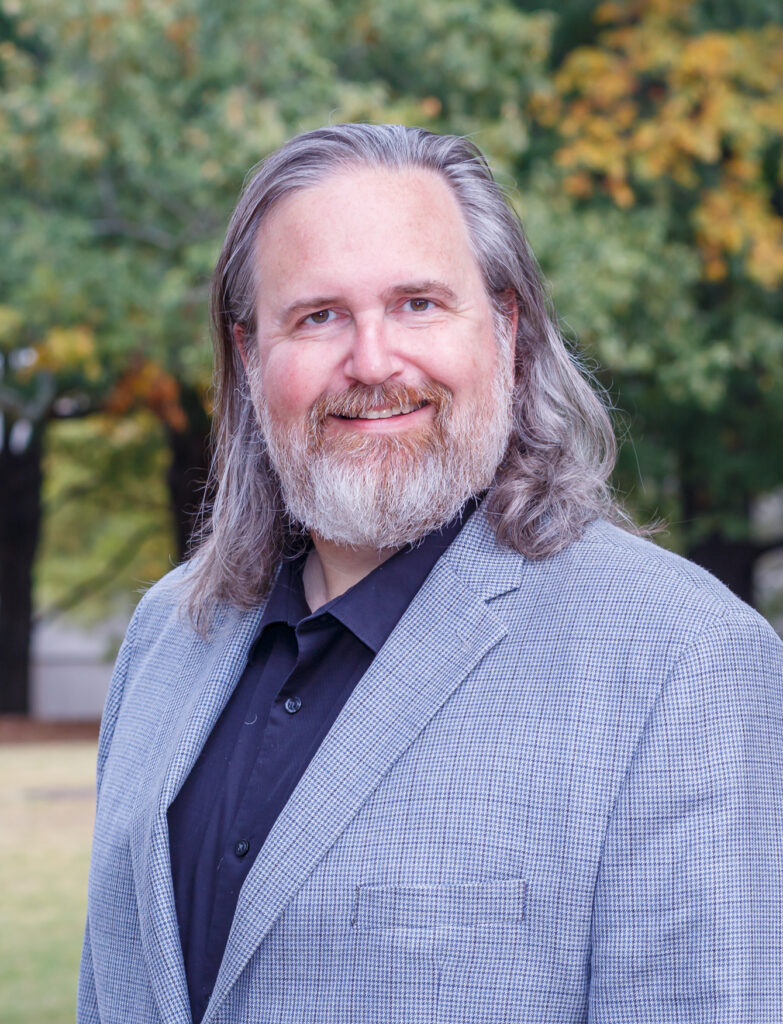Advent: God With Us

2 Kings 2:9-22
When they had crossed, Elijah said to Elisha, ‘Tell me what I may do for you, before I am taken from you.’ Elisha said, ‘Please let me inherit a double share of your spirit.’ He responded, ‘You have asked a hard thing; yet, if you see me as I am being taken from you, it will be granted you; if not, it will not.’ As they continued walking and talking, a chariot of fire and horses of fire separated the two of them, and Elijah ascended in a whirlwind into heaven. Elisha kept watching and crying out, ‘Father, father! The chariots of Israel and its horsemen!’ But when he could no longer see him, he grasped his own clothes and tore them in two pieces.
He picked up the mantle of Elijah that had fallen from him, and went back and stood on the bank of the Jordan. He took the mantle of Elijah that had fallen from him, and struck the water, saying, ‘Where is the Lord, the God of Elijah?’ When he had struck the water, the water was parted to the one side and to the other, and Elisha went over.
When the company of prophets who were at Jericho saw him at a distance, they declared, ‘The spirit of Elijah rests on Elisha.’ They came to meet him and bowed to the ground before him. They said to him, ‘See now, we have fifty strong men among your servants; please let them go and seek your master; it may be that the spirit of the Lord has caught him up and thrown him down on some mountain or into some valley.’ He responded, ‘No, do not send them.’ But when they urged him until he was ashamed, he said, ‘Send them.’ So they sent fifty men who searched for three days but did not find him. When they came back to him (he had remained at Jericho), he said to them, ‘Did I not say to you, Do not go?’
Now the people of the city said to Elisha, ‘The location of this city is good, as my lord sees; but the water is bad, and the land is unfruitful.’ He said, ‘Bring me a new bowl, and put salt in it.’ So they brought it to him. Then he went to the spring of water and threw the salt into it, and said, ‘Thus says the Lord, I have made this water wholesome; from now on neither death nor miscarriage shall come from it.’ So the water has been wholesome to this day, according to the word that Elisha spoke.
Advent is a liminal time. It’s a time of anticipation before the promise of a new hope. It’s a time of patience, expectation, and transition. Perhaps one reason why it is appropriate for Advent to occur annually is because of the constancy of such transition. Even when events seem to repeat themselves, change is always immanent. During times of change, relationships become all the more important. We support each other through the changes. Those of us who have seen the other side of a transition may guide others who are just now arriving at the precipice of one. Many such guides emerge throughout our lives. If we are fortunate, we find mentors—either formally or informally—who help us navigate these liminal spaces, the dusks and dawns of our lives.
With apologies to Jesus and his disciples, the mentoring relationship that most grabs my imagination is the one between Elijah and Elisha. Perhaps this is because of my love of fantasy literature—Elijah’s ability to cast fireball on his enemies (2 Kings 1:9-11) or Elisha’s penchant for summoning bears to protect his reputation from a miscreant youth group (2 Kings 2:23-24). But I suspect there is something deeper than my love for evocative mystical displays of supernatural prowess. Elijah’s and Elisha’s reciprocal commitment to one another demonstrates the bond and importance of the mentoring relationship.
Elijah meets Elisha during a liminal time in his own life. God will soon take Elijah from his mortal existence into the heavens, but before this happens, God calls Elijah to seek Elisha the son of Shaphat and to anoint him as his successor (1 Kings 19:16). Elijah finds his mentee in the course of normal, everyday agricultural work. Elisha is plowing a field with his twelve oxen. In that ordinary circumstance, Elijah spreads his mantle over Elisha, calling him to new work.
In 2 Kings 2, we fast forward to the hours before God was going to take Elijah away. While we don’t know how long the relationship lasted, the verses preceding the passage for this devotional show the strongest of bonds between these two prophets of God. Elijah urges Elisha to stay behind thrice in these verses, but Elisha reiterates his commitment to Elijah each time, saying, “As the LORD lives and as you live … I will not leave you” (2 Kings 2:2, 4, and 6). Elisha, well aware of what is about to transpire, persists in his presence with his mentor to the very point of Elijah’s ascension.
The two prophets arrive at one of the geographical locations most associated with liminality in the Bible, the Jordan River. This was the place where Jacob wrestled with the mysterious being at night (Genesis 32:22-32; the Jabbok is a tributary to the Jordan River), as well as the place where the priests processed with the Ark of the Covenant to lead the Israelites to cross into Canaan on dry ground (Joshua 3:14-17). Crossing over the separated waters symbolizes a transition, a new moment of creation that recalls the very first creation when God separated the waters above from the waters below (Genesis 1:6-8).
The passage for today’s devotional begins at an ending that is itself a new beginning. Elijah asks Elisha what he desires as a parting gift. Elisha’s answer is both an affirmation of what he saw in his mentor and, perhaps, an expression of his own feelings of inadequacy. Elijah’s response, while perhaps not the most reassuring, is packed with the truth of agnosticism: “You have asked a hard thing; yet, if you see me as I am being taken from you, it will be granted you; if not, it will not” (v. 10). Elijah makes no promises, but offers the hope of possibility. The two continue to walk and have conversations we can only wish to hear when a sudden whirlwind of fire and horses whisks Elijah away. Elisha once again shows his commitment to the relationship, watching until Elijah is gone and mourning his loss (v. 12). Elisha then picks up Elijah’s mantle and uses it to part the waters of the Jordan again, walking back towards his community (v. 14).
What must have been a profound experience for Elisha was not for him alone. The absence of Elijah impacted the rest of the prophetic community, as well. While they were able to discern that Elijah’s spirit had rested on Elisha (v. 15), they still wanted to find the body of their previous teacher whom they suspected might have fallen out of the sky (v. 16). Like so many of us do throughout our faith journeys, they both believed and disbelieved simultaneously. But these prophets showed their commitment to Elisha just as Elisha showed his commitment to Elijah. They continued as a community. They persisted until they witnessed Elisha’s first miracle, one that significantly involves the transformation of putrid, necrotic water into water that could both give and sustain life.
This text may meet us at different points on our journeys. Perhaps we are among those who have mourned the recent loss of a cherished leader, mentor, or companion. Perhaps this passage reminds us of the portion of their spirit that rests upon us and sustains us as we carry on our own journey. Perhaps we are at a point of transition in our own calling or ministry. Perhaps we find ourselves needing to leave the security of one path to embark on another as Elisha did. Maybe we find ourselves on Elijah’s side of the story, recognizing that transition may be immanent. It may be time for us to seek out an Elisha to mentor, train, or lead as God calls us to new horizons. In any case, this text may remind us that as we face these transitions, we need not do it alone. We can seek the freedom to lean on relationships and communities to face these transitions together, believing even as we sustain each other through our disbelief.
 David Garber
David Garber
Rev. Dr. David G. Garber, Jr. is associate professor of Old Testament and Hebrew and director of distance learning at McAfee. He received his B.A. in religion from Baylor University (1995), his M.Div. and Th.M. from Princeton Theological Seminary (1998-99), and his Ph.D. in Hebrew Bible from Emory University (2005).
In his teaching, Dr. Garber likes to instill in his students a sense of curiosity about lesser known biblical texts or texts that present particular theological problems to traditional Christian interpretation. Moreover, he likes to help students develop their own ministerial voice using creative projects in his electives like, “Social Justice and the Old Testament,” “The Theology of Exile,” “Creation Theology, Spirituality, and the Arts,” and “The Bible and Popular Culture.”
Dr. Garber is married to Dr. Michelle Brooks Garber, and the two can be found often together training their three Brittany dogs in various dog sports. Dr. Garber has an avocation in nature and landscape photography and has recently taken up gardening at the inspiration of his students in his course on Creation Theology.